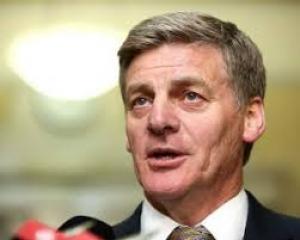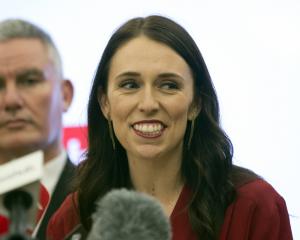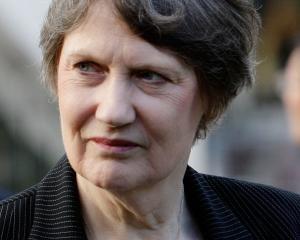
Mr Macron went from zero to President of France in nine months and built from scratch around him a new movement, En Marche. Gareth Morgan formed a new outsider party last year but still has very little opinion poll traction.
Is there lurking in a big party here a Martin Schulz, who in March took over Germany's Social Democratic Party (SPD) and lifted it out of the pits, or a Theresa May, whose practical, personalised conservatism has capitalised on British Labour's shambles to seize a likely comfortable majority in the election there in June?
Here the nearest to a Schulz or May, since ''macropersonality'' John Key sloped off in December, is Jacinda Ardern, at age 36 close to Macron's 39.
Her speech at Labour's pre-election congress on Saturday combined substance and engagement - a message on democracy and younger (non) voters plus policy on suicide, a distinct personal presence and directness.
If the Ardern of today had been Labour's prime presenter from, say, a year back Labour might not be bumbling in the polls. She connects, as no Labour leader has since David Lange. (Helen Clark was respected, hugely, rather than liked.)
There might also not have been the recent blunders, such as over the list, which, unlike in 2014, is a genuine refresh, not least in its smart, articulate, mostly young professional women. Six were on show on a panel at the congress.
New Zealand does not share with France that country's fascination with hardline, right-wing politics or its two major parties' disarray. Nor does New Zealand share with Britain its two main parties' schisms.
New Zealand Labour is not led, as British Labour is, by a reactionary. Jeremy Corbyn wants the past back and has only a minority of his MPs onside.
Labour here has not plunged as far as Germany's SPD had before Mr Schulz. In fact, even after having slid a bit in polls since March, Labour is matching the SPD, where the initial Schulz bounce has also subsided a little recently.
On the National side, five months after Mr Key extracted his ''macropersonality'' appeal, his party is still firm in polls and can build on that next week with a give-some-more Budget.
Even on Labour's side, if the Greens are added, that ''coalition'' adds up to a deficit with National that in theory is not unbridgeable.
In short, there is still something closely resembling the old two-force, centre-left/centre-right arrangement.
New Zealand First is about 10%, far below the 35% France's nationalist populist Marine Le Pen got in the presidential election, though of a low total vote. The other small parties here are truly small.
The recent Dutch election left the established parties broadly in power despite a right-wing challenge. That may be repeated in Germany. Mr Macron's election, following the Dutch one, was hailed by some as showing populists cannot (yet?) win.
But Italy is riven and old centre-right and centre-left parties across southern Europe are in trouble.
And in France Mr Macron (once briefly a Socialist) has yet to govern. Can En Marche transplant his ''macropersonality'' appeal into enough seats in the parliamentary elections next month to give him a persuasive base? Even if En Marche does win a good number of seats, will it be able to build them into a durable party?
No-one knows. But if France is to climb out of the fug it has been in for some time, it will need real reform, which Mr Macron has promised but which will be realised only if he can sideline, delegitimise or finesse the resistance that has stymied earlier reform attempts.
Miss Le Pen's right-wing nationalists have so far only been beaten into second place, not reduced to New Zealand First's 10%.
And if France does not climb out of its fug, can Angela Merkel hold Europe together, especially if her support as Chancellor is weakened in Germany's September election? Does it matter? Europe is old and a long way away.
If Europe falters, that will weaken the global economy. Add in United States' destabilising caprice. Then add China's mounting internal imbalances which, if not contained and unwound, could shock the global economy badly. Stir into that calculus the potential for geopolitical upset from China's assertiveness as it expunges a ''century of humiliation'' by ''hegemonic'' Western nations and reclaims what it sees as its millennia-old, ''rightful'' place as a powerful, respected and ''peaceful'' giant, head of a respectful ''family'' of surrounding nations, as Australian academic Merriden Varrall puts it.
New Zealand's moderate calm might quickly dissipate if things go wrong out in the world and unbalance Steven Joyce's immigration, tourism and construction-fuelled, debt-ridden economy.
We would then see how solid this country's two-force centre-right/centre-left party arrangement is under stress.
And if it is more fragile than it looks, would we then get a Macron - or a Le Pen or a Corbyn or a May?












